The best ChatGPT alternatives for students in 2025 are tools that support the full academic workflow: summarizing research, drafting essays with structure, generating citations, rewriting for clarity, and checking originality. In this guide, I rank seven popular AI tools based on output quality, research usefulness, and how well they fit real student needs, especially for academic writing.
When I was a graduate student, I searched “ChatGPT alternative” constantly. I wasn’t looking for a flashy chatbot. I needed a tool that helped me study smarter, write in an academic tone, and produce work that felt credible and personal. And all this without sounding like generic AI.
I test tools for practical outcomes: Does it save time? Does it improve quality? Does it help students learn and write responsibly? Here’s what actually performs best.
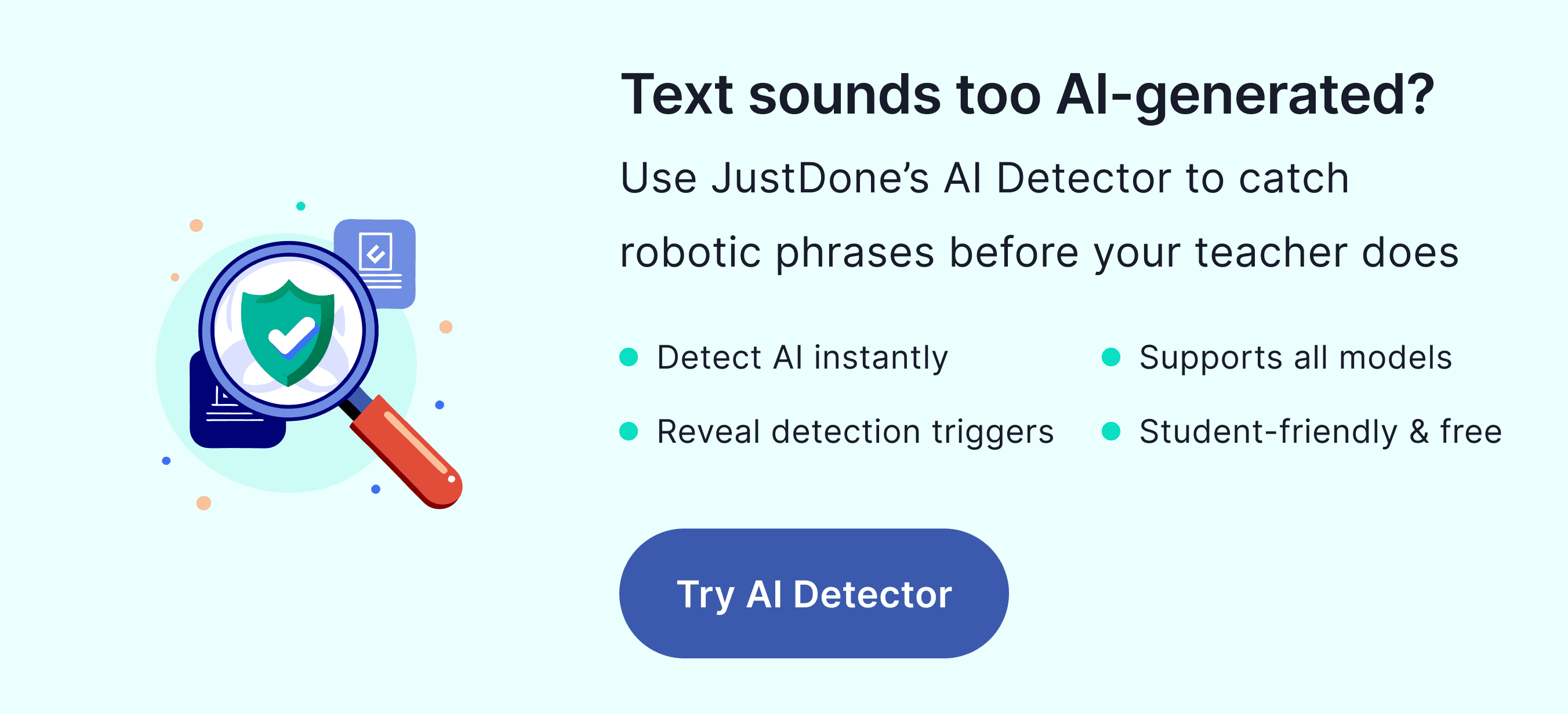
How I Tested These ChatGPT Alternatives (Methodology)
To rank these tools fairly, I tested them using the same student-style tasks across multiple disciplines. Over several months, I evaluated each platform on:
- Academic summarization: turning dense material into clear study notes
- Essay drafting: generating structured arguments (intro – thesis – body – conclusion)
- Citation support: ability to generate citations (APA/MLA/Chicago) and use sources responsibly
- Rewrite quality: making drafts clearer, less robotic, and more readable
- Research usefulness: whether it can provide source links or current information
- Student workflow fit: how well it reduces tab-switching and supports submission-ready writing
Each tool was scored for output quality, practicality, speed, and learning value, not just how “impressive” the AI sounded.
Comparison Table: Best ChatGPT Alternatives for Students (2025)
To save you time, I've created this comparison table based on months of testing:
| Tool | Best for | Strength | Limitation | Free Access |
|---|---|---|---|---|
| ChatGPT | General writing and idea generation | Versatile, strong reasoning, long output | Text sounds generic | Yes, but limited |
| JustDone | Complete academic suite: writing, research, detection, and humanization | Templates, citations, detection and humanization in one place | Top features require subscription | 3 daily AI detection checks and limited paragraph rewrites |
| Claude | Deep reasoning and long-context study | Nuance, context retention, structured thinking | Tends to get abstract; less practical for technical subjects | With limits |
| Gemini | Fast facts & light research | Up-to-date info, fast referencing | Superficial essays; needs editing | Yes (full access) |
| Microsoft Copilot | Research with real-time sources | Accurate current info, citations from web | Robotic tone; not ideal for essay polish | Yes (full access) |
| Perplexity AI | Verified sources & research summaries | Reliable citations, fact-gathering | Not creative; needs a writing tool alongside | 5 searches daily |
| Jasper | Personal statements & marketing text | Persuasive tone, brand-style writing | Cliché-prone, weak for academic depth | No (7-day trial) |
| Writesonic | Fast drafts & SEO-style writing | Quick, affordable | Shallow arguments; needs heavy revision | Limited (10,000 words/month) |
Now that you've seen the overview, let me share my detailed experience with each tool, starting with the one that surprised me most.
1. JustDone
JustDone AI Chat consistently performs best for learners because it isn’t just a chatbot. It’s a complete academic workspace that combines an AI chat assistant, rewriting tools, citation support, and originality features in one place. JustDine removes the need to juggle multiple platforms.
At its core, JustDone offers PollyLLM Chat, a ChatGPT-like assistant optimized for academic writing. Instead of relying on complex prompts, you select academic templates (essay, research paper, response, etc.), and the system structures the output accordingly.
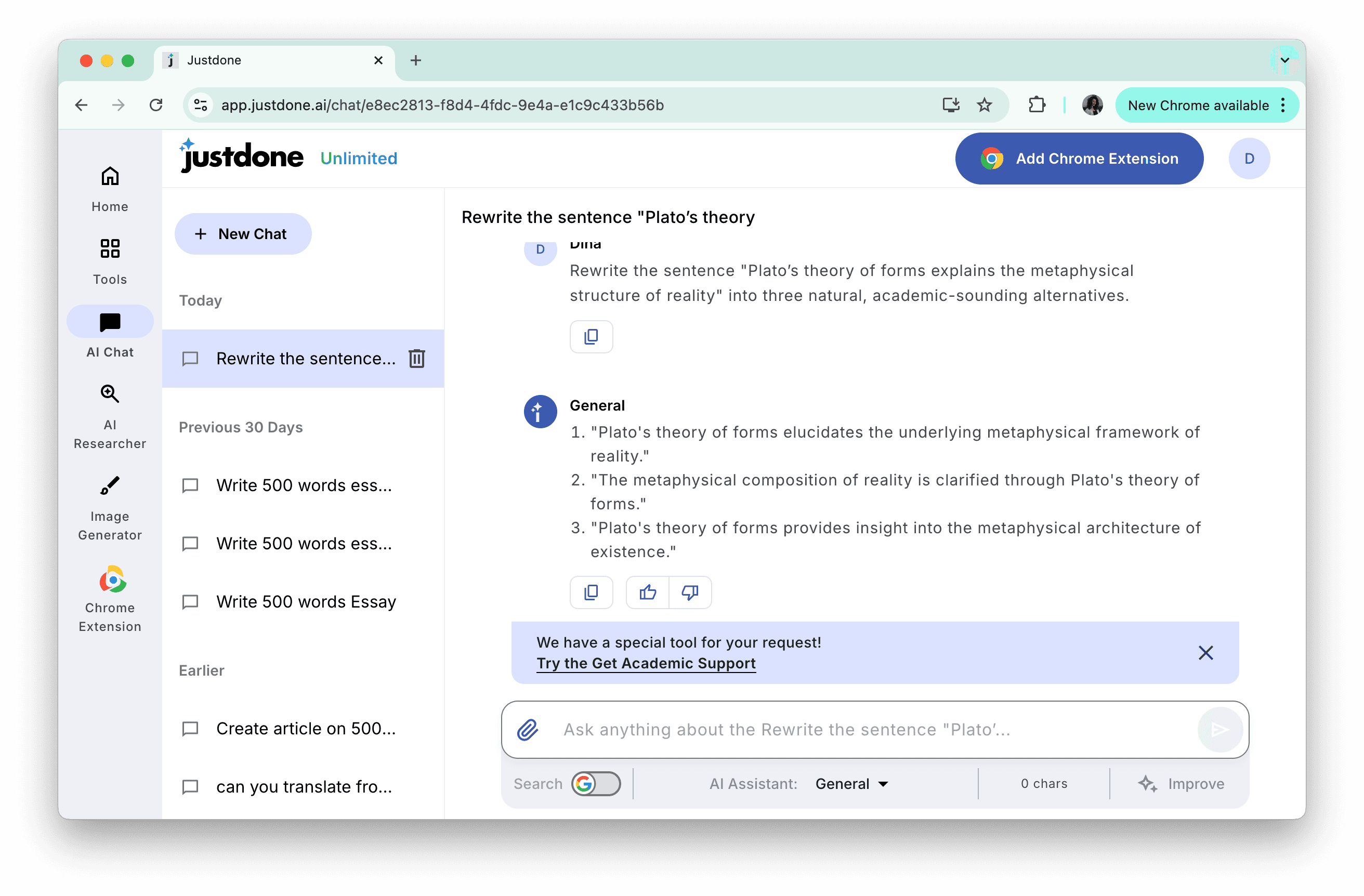
Advanced subscription includes:
- Full access to PollyLLM Chat (ChatGPT alternative)
- 7 modes of AI chat's answer (General, Career Counselor, Marketing Director, etc)
- Unlimited text generation (50,000 words per input)
- Unlimited AI detection checks & advanced humanization without limits
- Plagiarism checker
- Accurate citations in multiple formats
- Style consistency across documents
Cons:
- PollyLLM Chat requires paid subscription
- Some creative tasks might feel more structured than spontaneous, but for academic writing, that's a plus.
2. Claude
Looking for a ChatGPT alternative that’s great at exploring ideas in depth? Claude is a top pick.
Claude, developed by Anthropic, is one of the strongest free ChatGPT alternatives that shines when context matters. The free plan includes Claude Sonnet with a solid daily message limit, so you can easily use it for studying, brainstorming, or long research chats.
I’ve used it for case studies and theory-heavy topics, and it remembers details better than most tools. It feels like chatting with a highly attentive study buddy who listens carefully, but sometimes overthinks answers. Instead of giving a clear, direct point, it can drift into general or abstract language.
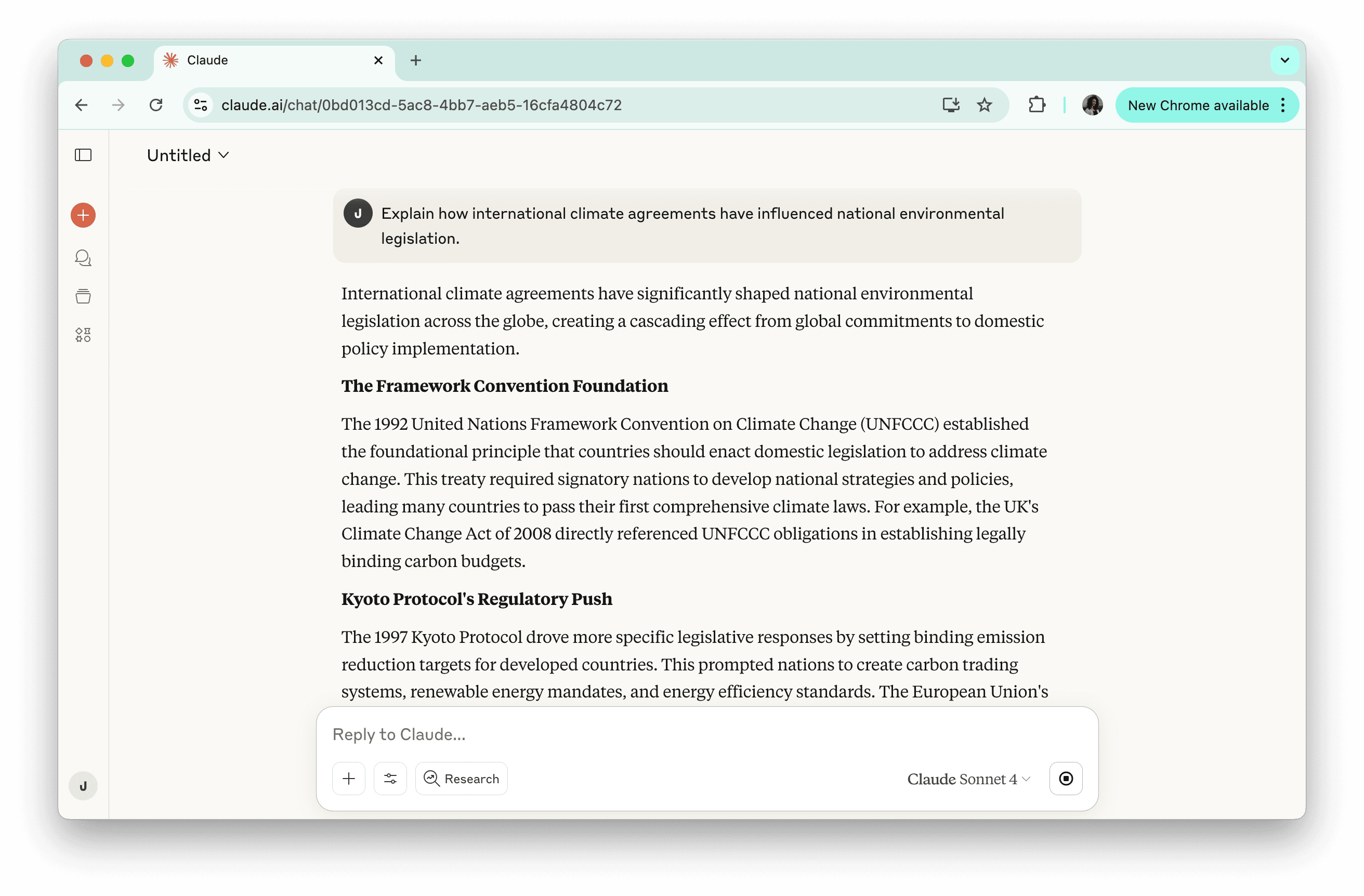
Cons:
- Sometimes, becomes abstract and less direct
- Less effective for technical subjects
- Citation support is limited
Best for: literature, philosophy, social sciences, and reflective writing.
Not ideal for: math, engineering, coding tasks, or situations where you need precise results.
If you enjoy thoughtful conversations and exploring ideas, Claude is a fantastic choice. If you need quick clarity and precision, ChatGPT still leads.
3. Gemini
Google's Gemini (formerly Bard) stands out as a completely free ChatGPT alternative with no daily limits. This makes it particularly attractive for students who need constant access to an AI assistant without worrying about usage caps.
I’ve tried using Gemini for initial research and brainstorming sessions. When I needed to generate an outline for a biology essay on gene editing, it efficiently provided a structured framework with recent developments in the field. However, the depth often remains surface-level. The sentence: “CRISPR is a gene-editing tool used to modify DNA” stayed too surface-level, even when prompted to elaborate.
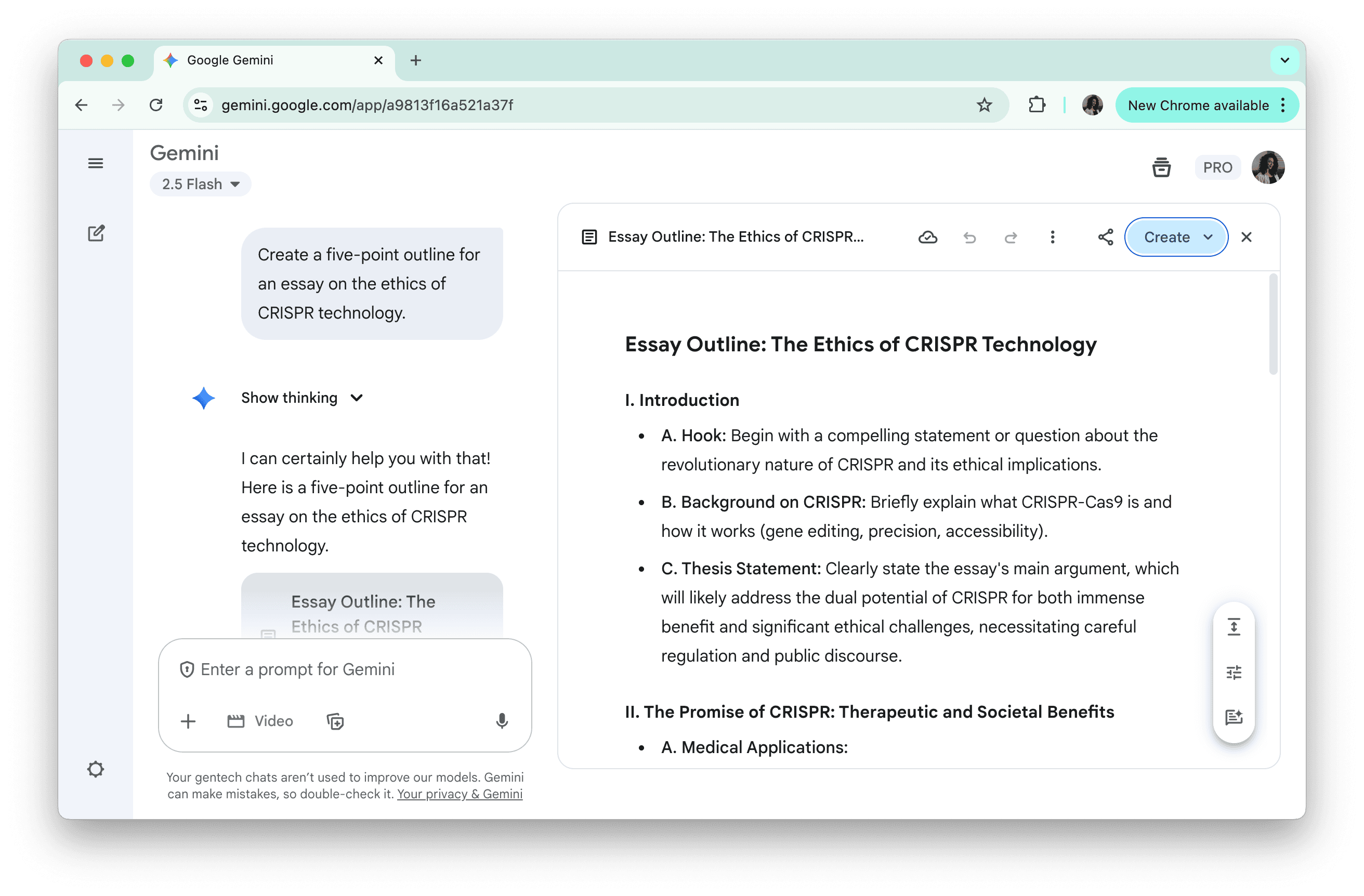
Cons:
- the lack of depth in academic researches
- less handy in dialogue in comparison with ChatGPT
- Can produce simple explanations that lack argument development
Where Gemini truly shines is in its ability to access and synthesize current information. Unlike ChatGPT's knowledge cutoff, Gemini can pull recent data, making it invaluable for topics requiring up-to-date statistics or current events analysis.
4. Microsoft Copilot
Powered by GPT-4 and integrated with web results, Bing Copilot is surprisingly helpful for learners working on current event topics.
I've found Copilot particularly useful for research papers requiring recent citations. When I asked to explain recent trends in AI regulation it pulled quotes from real-time news sources. That’s great, except the writing style often feels robotic. For instance: “In 2023, AI legislation expanded in Europe with the introduction of the AI Act, aiming to regulate high-risk systems.” Factual, but not very engaging.
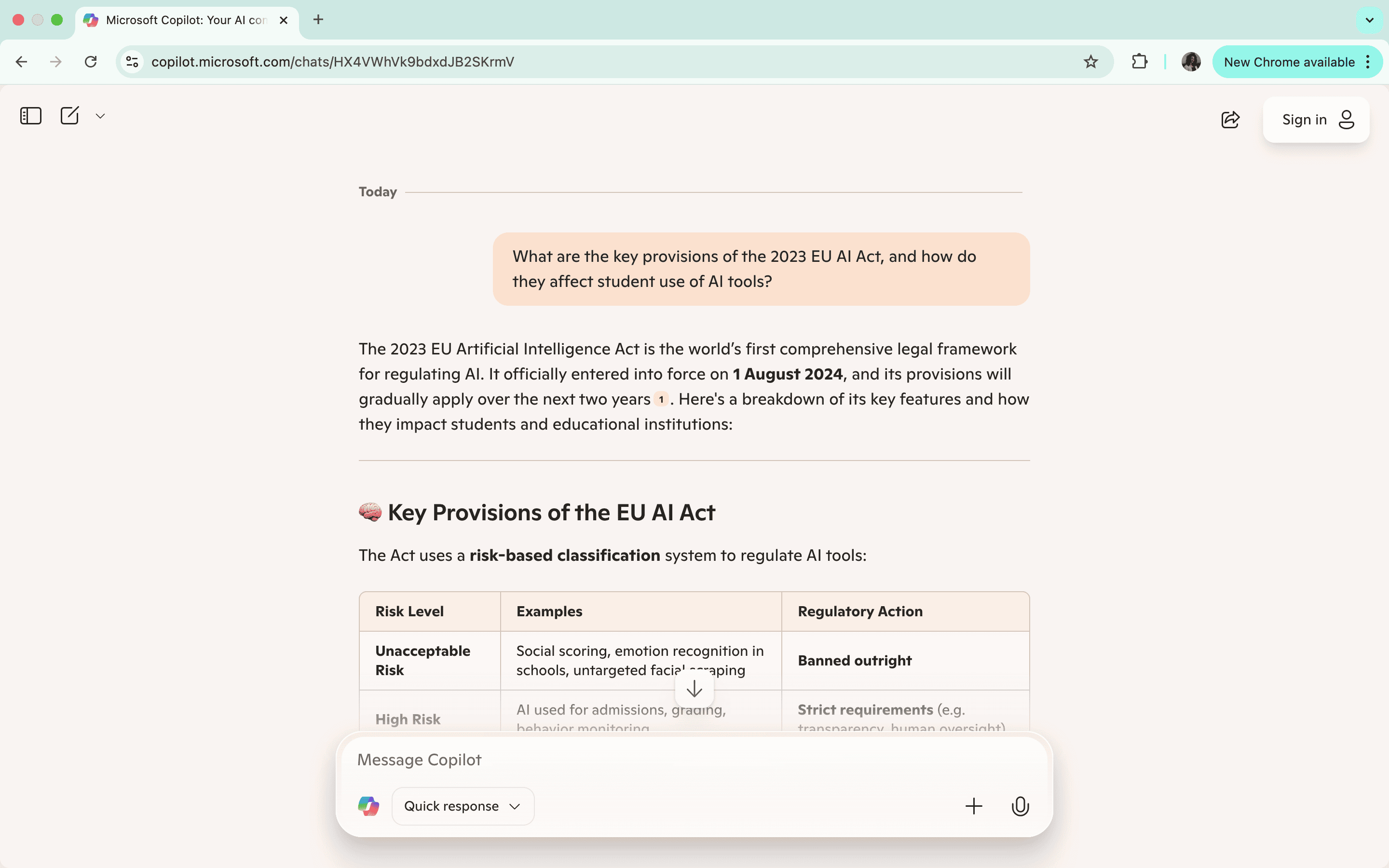
Cons:
- Writing tone can feel robotic or overly “report-like,” requiring smoothing for essays.
- Sources can sometimes be broad or news-heavy, not always ideal for academic references.
- Can include too many citations without strong synthesis.
5. Perplexity AI: Fast and Reliable for Source-Based Summaries
Perplexity AI is gaining ground as a sharp and quick research assistant. It excels at retrieving up-to-date information and, most importantly, always provides source links. Perplexity AI offers a free tier with 5 detailed searches daily, making it an excellent research companion for students.
I tested Perplexity for a complex economics paper on inflation trends. It returned not just a clear summary but included references from the Federal Reserve, World Bank, and peer-reviewed journals. Each claim was backed by a numbered citation, making it easy to verify information and build a bibliography. The free tier's 5 searches might seem limited, but each search is comprehensive enough to cover substantial ground.
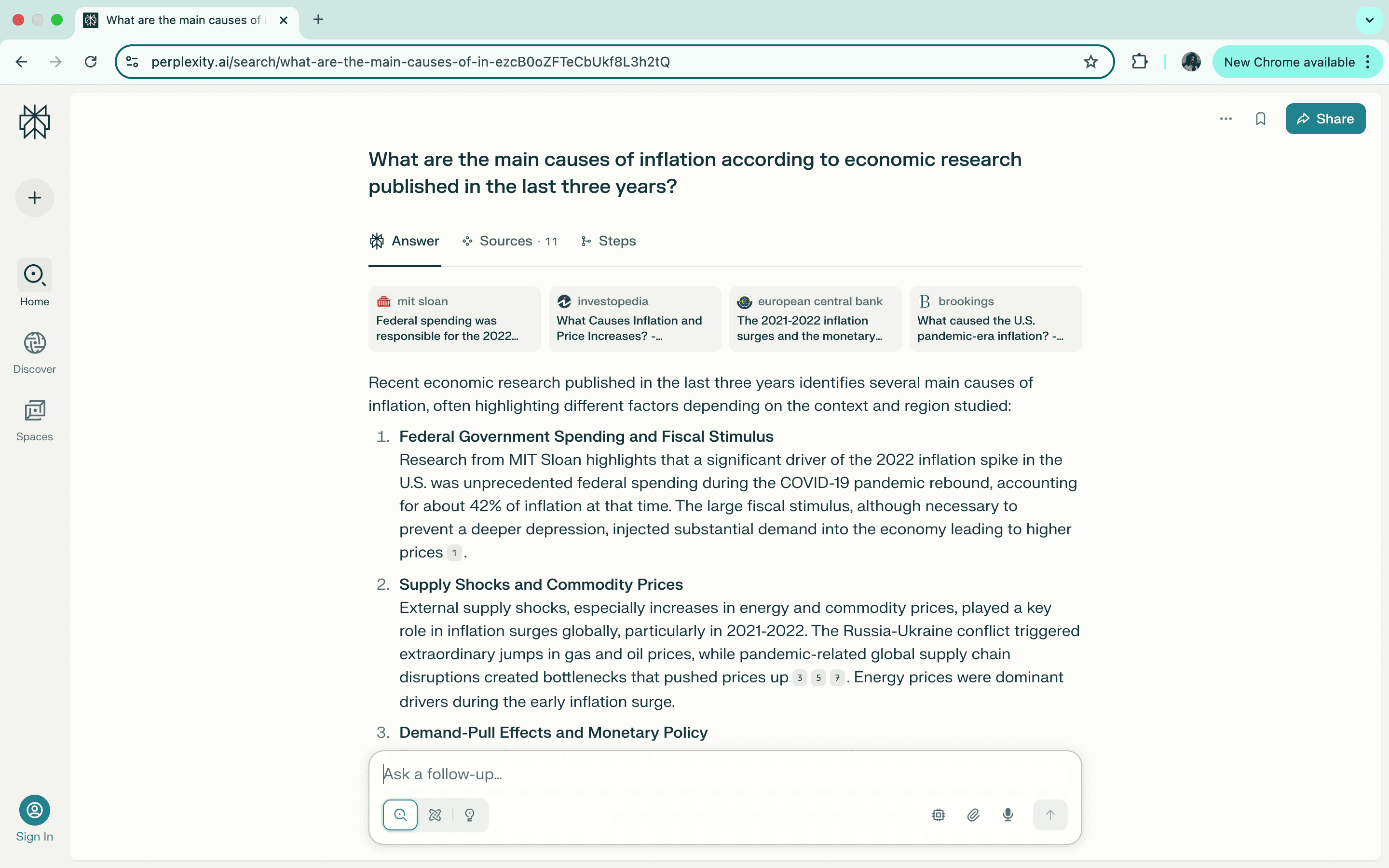
Cons:
- Excellent for research summaries, but not a creative or polished writing tool.
- Output can feel neutral and informational, lacking strong academic voice or argumentation.
- Free tier limits the number of advanced searches
6. Jasper AI: Marketing and Copy Strengths, Not Built for Students
Jasper is well-known in the marketing world but requires a paid subscription after a 7-day trial. I tested it out of curiosity to write a scholarship motivation letter. While it generated strong emotional language, it’s not ideal for academic essays unless heavily edited.
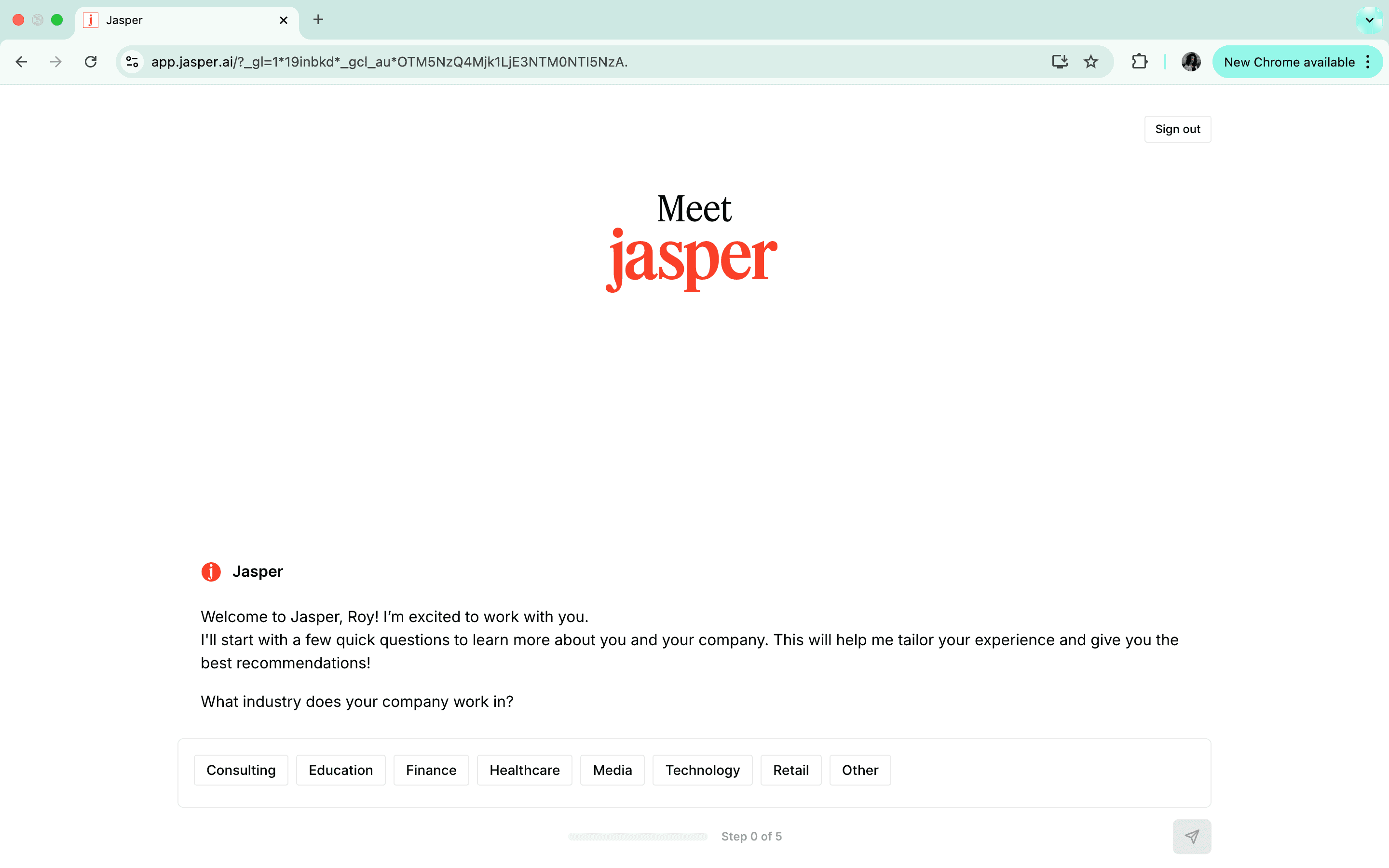 Cons:
Cons:
- Not built for academic writing; output can sound promotional or cliché.
- No strong free plan for students (mostly trial and paid).
- Weak for research depth and evidence-based argumentation.
7. Writesonic: Speed Over Style
Writesonic offers a limited free tier with 10,000 words monthly, making it a potential option for students with light usage needs.
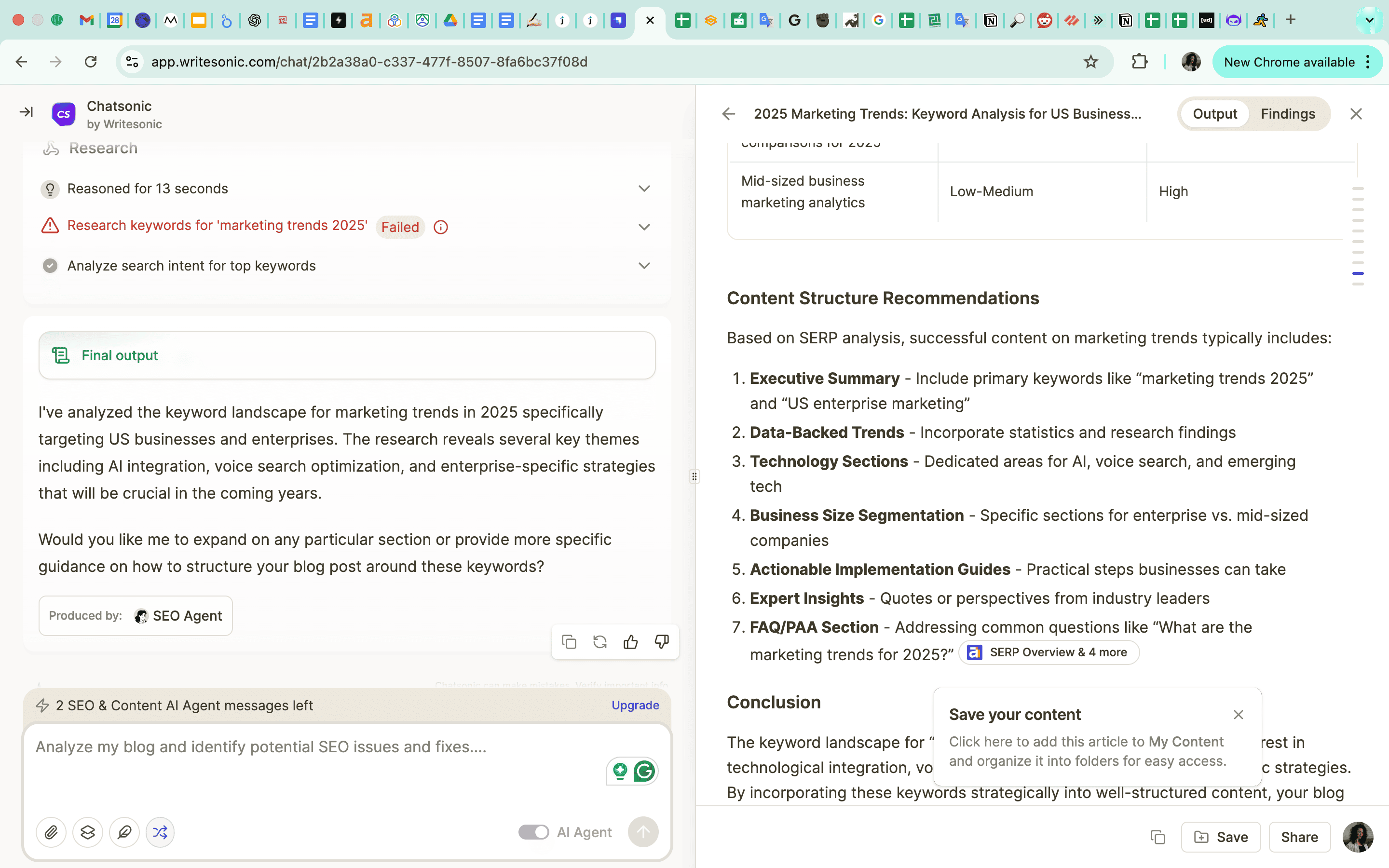
I used Writesonic to generate a response to the prompt, “Explain the pros and cons of social media for students.” The output was fast and readable, but lacked nuance. It listed benefits like connectivity and drawbacks like distraction, but failed to develop any of those ideas. I see this tool as good for rough drafts or short assignments, but not for in-depth research writing. On the upside, it’s affordable and fast.
Cons:
- Produces fast drafts but often with shallow reasoning and limited nuance.
- Optimized for marketing/SEO writing, not academic structure or argument development.
- Needs strong human editing to meet university-level writing standards.
My Verdict: Use ChatGPT Alternative Tools That Best Support You
There’s no single best ChatGPT alternative for everyone, but there is a best fit for your process. If you're building research papers, rewriting to reduce AI flags, or summarizing complex documents, JustDone AI Chat is built for you. For quick checks or pulling in real-time data, tools like Bing or Gemini can supplement the workflow. But when it’s time to submit, JustDone provides integrated formatting and detection tools that streamline the submission process.
If I had had these tools during my entire academic life, I could have saved hundreds of hours. The key isn’t just choosing an AI; it’s choosing one that grows with your learning goals. Boring? Use ChatGPT. Philosophy major? Start with Claude. Quick fact-checking? Perplexity is your friend. Complete academic workflow? JustDone makes sense